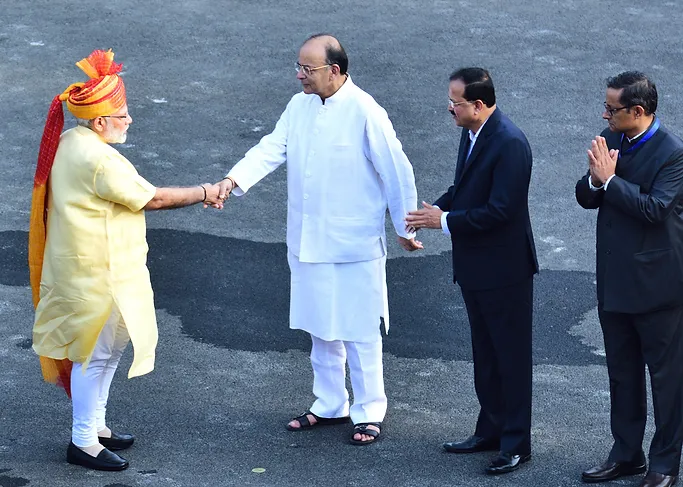The year gone by for the Reserve Bank of India has been anything but boring, uneventful, staid and apolitical.
Adventure is a word, not usually associated with the activities of a central bank. Central banks and central banking are supposed to be boring, uneventful, staid and apolitical.
The year gone by for the Reserve Bank of India has been anything but boring, uneventful, staid and apolitical.
The build-up began late last year, with the acrimonious spat between the RBI top management and mandarins in the Finance Ministry, leading to the resignation of Governor Urjit Patel and a swift transition to a new governor in Shaktikanta Das.
The new governor got on the job fairly quickly, especially on the monetary side. The Monetary Policy Committee cut the repo rate in five successive meetings, starting from the new governor’s first meeting in February 2019 till October 2019, bringing the repo rate down by 135 basis points, from 6.5 percent to 5.15 percent. A peculiarity—which was most probably mooted by the new governor himself—was a rate cut of 35 basis points, instead of the usual ‘boring’ moves in increments of 25 basis points or 50 basis points. That was a novel move and did take markets by surprise and has now scrambled market expectations of potential further rate actions.
In the face of falling economic activity and GDP growth, Governor Das was also not shy of stating that the MPC will ‘continue with the accommodative stance for as long as it is necessary’. Many in the media likened this to the famous commitment by Mario Draghi, the European Central Bank chairman, at the height of the Euro currency crisis in 2012 to ‘do whatever it takes’ to preserve the Euro currency.
The RBI has also been enterprising in its management of liquidity. The RBI conducted a significant amount of open market operations (Rs 3.5 lakh crore) to infuse liquidity.
The RBI ended up buying almost 80 percent of the net government borrowing, an unprecedented level of fiscal support.
In order to avoid bankrolling the government’s fiscal largesse, the RBI turned to an innovative instrument to access foreign liquidity into India. The use of forex swaps as an instrument to get dollar liquidity and convert it into rupee liquidity was never attempted before. Having tasted success with the first tranche of $5 billion in March 2019, the RBI did another tranche of $5 billion in April 2019. The use of forex swaps not only infused liquidity and increased foreign exchange reserves in the interim but by avoiding the use of further OMOs it saved itself from the ignominy of deficit monetisation.
The overall result has been significant excess liquidity to the tune of Rs 2.5 -3 lakh crore in the banking system which has led to a sharp fall in money market rates, with treasury bill rates and AAA PSU corporate deposit yields well below the repo rate. This is to be expected in an ‘accommodative’ monetary policy stance, but the extent of the accommodation is similar to the times seen post the 2008 financial crises.
Even then, the RBI has been troubled with the lack of monetary transmission of lower repo rates on to lower lending rates and having failed with a few options, eventually forced banks to move to repo-linked lending, a move which the banks haven’t wholly adopted and a move which will be put to test in a rate hiking cycle.
Troubled with the precarious condition and systemic risks of large NBFCs in the backdrop of a fraud at a co-operative bank, the RBI in the absence of a financial resolution corporation, got the government to amend the Insolvency and Bankruptcy Code to drive through the resolution of a failed financial firm. This may pave way for the government to move towards setting up a resolution corporation that is better set up to deal with financial and bank failures.
The most controversial of all decisions taken by the RBI during the year was the huge transfer of surplus funds by the RBI to the government. In its financial year (July 2018-June 2019), the RBI transferred a total of Rs 1.76 lakh crore to the government broken up into annual dividend of Rs 1.23 lakh crore and an excess capital transfer of Rs 52,000 crore. Although large as a consolidated amount, the excess capital transfer was lower than the initial demands of the government. To refresh your memory, the RBI had made truce by appointing a committee to look into whether and how much excess capital the RBI carries in its balance sheet. Based on the recommendations of the Bimal Jalan Committee, the RBI ended up transferring an excess capital of Rs 52,000 crore. Despite that, many saw the large overall transfer as a raid on RBI’s reserves which raised questions on the apolitical stature expected of the RBI.
The year is ending with yet another remarkable move by the RBI. Mimicking the U.S. Federal Reserve, the RBI has announced its own version of 'Operation Twist'. With a view to directly manage the yield curve, the RBI has announced that it will sell bonds maturing in 2020 and buy the benchmark 10-year government bond. The wide term premium, (the difference between the repo rate of 5.15 percent and the 10-year bond yield then around 6.75 percent) has caught RBI's attention. By this announcement, RBI has decided to try and reduce the term premium as a measure to further improve rate transmission. Again, unprecedented in its action and the monetary purist will view this askance as it being supportive of the very certain fiscal slippage this year.
The year was unprecedented as have been RBI's actions and reactions. Looking forward, we could expect monetary policy to move back to ‘neutral’; the excess liquidity to get back to ‘normal’; dividend transfer to be ‘routine’ and monetary operations to be ‘traditional’.
We hope the governor dons his grey suits and gets the RBI back to its essential character of being boring, staid, uneventful and apolitical.
The article was first published as an Opinion piece on BloombergQuint
https://www.bloombergquint.com/opinion/2019-rbis-year-of-adventures
The Views expressed are the Author’s Personal Opinion.
Arvind Chari is Head Fixed Income & Alternatives at Quantum Advisors Pvt. Ltd (QAPL).
Quantum Advisors is an India Based, India Focused, Investment Management Institution managing money for North American and European Pensions, Sovereign Wealth Funds, Endowments, Wealthy Individuals across Indian Equity, Fixed Income and Real Estate*.
*Real Estate is managed through Primary Real Estate, an Associate of Quantum Advisors.
Disclaimer:
· Quantum Advisors Private Limited is registered in India and holds a Portfolio Management License from Securities and Exchange Board of India (SEBI), India. It is also registered with the Securities Exchange Commission, USA as an Investment Adviser and as a Restricted Portfolio Manager with the Canadian provinces of British Columbia (BCSC), Ontario (OSC) and Quebec (AMF). Registration with the said authorities does not imply any level of skill and training.. This summary is subject to a more complete description and does not contain all of the information necessary to make an investment decision, including, but not limited to, the risks, fee and investment strategies of QAS. Any offering will be made only pursuant to an offering memorandum and other relevant documents that will be made available to qualified purchasers under applicable securities laws, and these documents must be carefully reviewed before any investment is made.
· Investing in shares or any asset is a risky proposition and share prices or prices of any assets can increase or decrease in value.
· Investors wishing to ‘double their money’ in one year or having short-term return objectives should not seek the advice of QAS as the research and investment style followed by QAS typically considers a longer-term time horizon.
· All of the forward-looking statements made in this communication are inherently uncertain and QAPL cannot assure the reader that the results or developments anticipated by QAPL will be realized or even if realized, will have the expected consequences to or effects on, us or our business prospects, financial condition or results of operations. A prospective investor can generally identify forward-looking statements as statements containing the words “will”, “should”, “can”, “may”, “believe”, “expect”, “anticipate”, “intend”, “contemplate”, “estimate”, “assume”, “target”, “targeted” or other similar expressions. Readers are cautioned not to place undue reliance on these forward-looking statements in making any investment decision. Forward-looking statements made in this communication apply only as of the date of this communication. While we may elect to update forward-looking statements from time to time, we specifically disclaim any obligation to do so, even if internal estimates change, unless otherwise required by applicable Securities laws.
· The views expressed here in this document are for general information and reading purpose only and do not constitute any guidelines and recommendations on any course of action to be followed by the reader. The views are not meant to serve as a professional guide / investment advice / intended to be an offer or solicitation for the purchase or sale of any financial product or instrument. Information sourced from third parties cannot be guaranteed or was not independently verified. Whilst no action has been solicited based upon the information provided herein, due care has been taken to ensure that the facts are accurate and views given are fair and reasonable as on date.
















